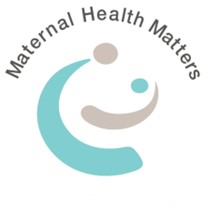World Breastfeeding Week 2021

This year’s theme, Protect breastfeeding: a shared responsibility, focuses on how breastfeeding is an important contributor to the survival, health and wellbeing of all.
This year we would like to highlight that maternity care impacts on breastfeeding success and those who provide maternity care share the responsibility to support the new mother and to achieve early initiation of breastfeeding.
Whether a woman breastfeeds her baby—or not—can affect the lifelong health of both. Breastfeeding is the normal biological extension of pregnancy and childbirth. Breast feeding is protective of many chronic diseases and of maternal neglect. The State of the World’s Mothers Report (2015) asserts that “Immediate breastfeeding is one of the most effective interventions for newborn survival. Breastfeeding provides the baby with good immune system protection, gut protection, protection against obesity and short- and long-term disease protection. Breastfeeding also benefits the mother: her uterus returns to normal size more quickly after birth if she breastfeeds; she is less likely to experience postpartum depression; she is less likely to have brittle bones later in life. Every six months of breastfeeding cuts down a woman’s breast cancer risk.
One of the key success factors for breastfeeding is early initiation of breastfeeding after birth. One of the most common reasons for not establishing breastfeeding is the delay of the first breastfeed as a consequence of birth interventions. Often mother and baby are separated, which means a delay in getting baby to breast. The baby is fed formula and imprints a teat rather than a nipple. The mother has to cope with pain, fatigue, possibly stress and the trauma of separation from her infant. All of which impact on successful breastfeeding.
The impact of shorter stays on breastfeeding is unexamined. With the increasing trend to shorter stays in hospital after birth, there is a need for more extensive professional postnatal support, specifically in the 6 weeks postnatally, in initiating and establishing breastfeeding, including greater access to support from midwives, including those trained as lactation consultants.
Women wear the emotional burden when they do not breast feed, yet often it is the birth interventions that impact on breast feeding rates. Given the fact that breastfeeding contributes both to the physical and economic health and welfare of women and their infants and society at large, not focusing on the impact of birth intervention on breastfeeding is at least misguided and at worst negligent.
Therefore it follows that achieving a safe, respectful birth will increase the rates of successful breastfeeding
- Enshrine postnatal support for all breastfeeding women to a minimum of 14 days and preferably up to 12 months to support transitioning to parenting.
- Define the breastfeeding education required for midwives and obstetrician and include in core competencies for practice.
- Report times to immediate breastfeeding by birth interventions, clinician and place of birth.
